 There is much concern with the amount of highly or ultra-processed foods the typical American eats - over 50% of the calories eaten daily! Ultra-processed foods are linked to all sorts of health issues (e.g., diabetes, heart disease). One reason is because these foods are not good for the gut microbiome - they feed microbes linked to poor health and not the microbes linked to good health.
There is much concern with the amount of highly or ultra-processed foods the typical American eats - over 50% of the calories eaten daily! Ultra-processed foods are linked to all sorts of health issues (e.g., diabetes, heart disease). One reason is because these foods are not good for the gut microbiome - they feed microbes linked to poor health and not the microbes linked to good health.
So how does one know if a food is ultra-processed? An easy way is to look at the ingredients list on the package or container and look for one or more ingredients not normally found in our kitchens at home. Instead, these ingredients will have chemical sounding names.
What ingredients indicate a food is ultra-processed? Some examples indicating a food is ultra-processed: soy lecithin, carrageenan, high-fructose corn syrup, hydrogenated oils, interesterified oils, hydrolysed proteins, invert sugar, dextrose, lactose, gluten, whey protein, nitrates, flavors, colors, titanium dioxide, caramel color, and emulsifiers. The list goes on and on. Even the innocent sounding "natural flavors" is a laboratory concoction.
These ingredients have typically been added to extend shelf-life or manipulate the taste, flavor, or appearance. Ultra-processed foods are "formulations of ingredients" that result from a series of industrial processes (thus "ultra-processed"). Researchers of the following article say that "ultra-processed foods are not real food" due to all the modifications and alterations.
Note that ultra-processed foods can be on the grocery shelf right next to similar foods with all natural ingredients. Examples are breads, cereals, and maple syrup (is it real maple syrup or an ultra-processed concoction?). This is why you should read ingredient lists.
Also, these foods are generally ultra-processed: soda, candy, margarines, cake mixes, hot dogs and processed meats (e.g., cold cuts), instant soups, mass-produced breads and cookies, frozen meals, fast food meals, energy bars and drinks, and protein bars.
![]() By the way, most foods that we buy or cook at home are processed to some extent, for example pasteurization of milk, freezing or boiling foods, fermentation, seasoning foods, cooking food, or even baking bread. Using real foods to prepare (process) food is OK for our health. It's totally fine.
By the way, most foods that we buy or cook at home are processed to some extent, for example pasteurization of milk, freezing or boiling foods, fermentation, seasoning foods, cooking food, or even baking bread. Using real foods to prepare (process) food is OK for our health. It's totally fine.
Foods can be unprocessed (e.g., raw fruits and vegetables), minimally processed, processed, and finally ultra-processed. The ingredients will tell you if it's just processed food (contains only normal foods or culinary ingredients - e.g., flour, sugar, salt, eggs) or whether it's ultra-processed (contains one or more chemical sounding ingredients).
These foods are NOT ultra-processed: pasteurized milk, raw fruits and vegetables, starchy roots and tubers (e.g., potatoes, yams), chilled meat and fish, plant oils (e.g., olive oil), sugar, oats, and salt.
A big problem is that ultra-processed foods are replacing unprocessed or minimally processed foods in our diet. This is also why we are getting less and less fiber in our diet, which is linked to health problems. Simple way to think about it: fiber from foods feeds beneficial gut microbes.
Excerpts from an April 2019 article in Public Health Nutrition: Ultra-processed foods: what they are and how to identify them
Ultra-processed foods are defined within the NOVA classification system, which groups foods according to the extent and purpose of industrial processing.
...continue reading "How to Identify An Ultra-Processed Food"

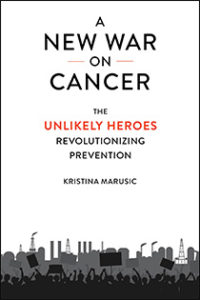 There is another very good book to read about environmental causes of cancer. It's called A New War On Cancer: The Unlikely Heroes Revolutionizing Prevention by Kristina Marusic. Published by Island Press in 2023.
There is another very good book to read about environmental causes of cancer. It's called A New War On Cancer: The Unlikely Heroes Revolutionizing Prevention by Kristina Marusic. Published by Island Press in 2023.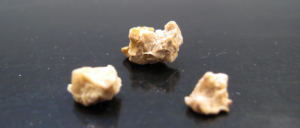
 This is so true....
This is so true....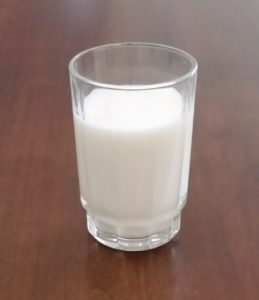 There appears to be a big downside to an all plant diet, which is the possibility of missing essential nutrients that are found in dairy and meat (e.g., vitamin B12, vitamin D3, iron, zinc, choline).
There appears to be a big downside to an all plant diet, which is the possibility of missing essential nutrients that are found in dairy and meat (e.g., vitamin B12, vitamin D3, iron, zinc, choline). A recent
A recent 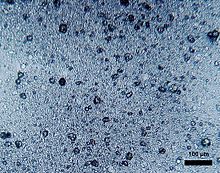
 For years research has linked some pesticides and toxic chemicals with the development of Parkinson's disease. Recent
For years research has linked some pesticides and toxic chemicals with the development of Parkinson's disease. Recent  What you can do:
What you can do: Once again a study looked at pesticide exposure in humans and found health problems. This time
Once again a study looked at pesticide exposure in humans and found health problems. This time 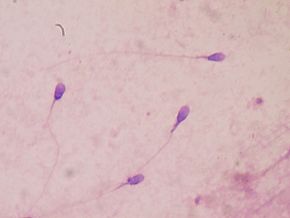
 Recently the NFL Players Association called for all 30 NFL stadiums to use natural grass rather than synthetic or artificial turf. The
Recently the NFL Players Association called for all 30 NFL stadiums to use natural grass rather than synthetic or artificial turf. The